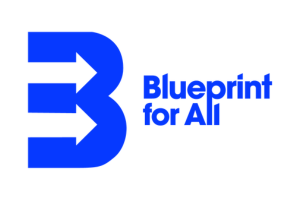Minimum wage on the rise: what it means for employers

From 1 April 2026, the statutory wage floor in the UK is likely to increase again. The Low Pay Commission (LPC) recommended, and the Government accepted, updated rates for 2025 which mean that for workers aged 21 and over the hourly rate is now £12.21 (a full time equivalent of £23,809.50, based on a working week of 37.5 hours). For workers aged 18–20 the rate is now £10.00 per hour (£19,500.00 FTE).
The government has also just appointed a new agency Chair (Matthew Taylor, who will be chairing the new Fair Work Agency from April 2026) to crack down on minimum wage underpayment and worker exploitation.
If you are an employer, further increases present a number of implications – some straightforward, others a bit more subtle – and one of the more intriguing issues is the fact that in some cases the minimum wage is now approaching or exceeding what some graduate recruits might be paid.
Why the minimum wage increase matters to employers
Cost-base increase: Even a modest increase in hourly wage rates has a direct impact on payroll. For roles near the bottom of the pay scale, this is not only a compliance issue but also a budgeting one.
Pay compression: If entry-level or low-grade roles now pay close to the minimum wage, the differential between them and the next pay band (including graduate salaries) may shrink. Where you might historically have paid graduates at say £25,000-£30,000 per annum (or an hourly equivalent) and paid entry roles much lower, these increases reduce the gap.
Graduate pay versus minimum wage: If a graduate joiner is starting on a modest salary, and that salary equates (when converted to an hourly basis) to only a small margin above minimum wage, this raises questions about internal equity, differentiation of roles, development opportunities, as well as employer branding (i.e., “what value does a graduate bring?”).
Attraction and retention: A tighter margin between new entrants and lower-paid workers may reduce the perceived reward of being a graduate recruit, or make it harder to justify higher starting salaries. Employers may therefore need to re-visit how they structure graduate remuneration and development programmes.
Wider implications: Payroll increases may also prompt closer scrutiny of other elements: overtime rates, bonuses, allowances (which may or may not count towards minimum wage), and whether roles previously assumed to be above minimum wage might need adjustment. Also, for smaller organisations particularly, the margin for error is tighter.
What action should employers take?
Review pay structures: Conduct a check of all roles paying near or just above minimum wage to ensure compliance with the new rates. Also review graduate salaries in relation. Are they still sufficiently differentiated? Is there a clear pay progression path?
Budget accordingly: Forecast the increase in wage costs for the coming year. Even if the increase per hour appears small, when multiplied across every relevant employee and perhaps across overtime/unsocial hours, the total cost may be significant.
Communicate appropriately: If you have salaried roles tied to hourly equivalents or entry roles where the minimum wage increase will apply, ensure HR/payroll systems are updated and employees informed. For graduates, you may wish to signal how their role, training, progression and remuneration differ from standard entry roles.
Review role design: It may be timely to look at the structure of roles, career paths, training and development. If the minimum wage is catching up with certain entry roles, emphasising growth, skills acquisition and advancement becomes ever more important for both attraction and retention of talented graduates.
Check compliance details: Ensure that all relevant hours are counted (including overtime, training time, travel when required by employer, etc) so that the true hourly rate meets the legal minimum. Non-compliance can attract penalties.
How this links to your graduate programmes
Where you have a graduate intake, the differential between a ‘standard entry’ role and a ‘graduate entry’ role is part of the value proposition. If non-graduate roles start to approach the minimum wage, the economics and perception of graduate roles may shift. You may want to revisit:
- The starting salary for graduates: Is it sufficient to reflect the skills and learning cost?
- The benefits, training, and support offered: Are these clearly articulated to graduates so that the premium over minimum wage is evident?
- The progression path: Is it transparent that graduates are on a fast track, with salary increases tied to performance and development?
- Internal pay equity: Ensure there are no anomalies where an experienced (or long-serving) employee in a lower grade is paid only modestly more than a new graduate.
Looking ahead
The LPC’s recent commentary suggests that the minimum wage framework will continue to evolve, and future increases may well reduce the gap further between minimum wage roles and broader pay levels. In that context, employers would be wise to think of minimum-wage roles as part of the broader remuneration ecosystem, not as static.
In short: the minimum wage increase has now become more than simply a compliance checkbox. It has strategic implications for attraction, retention, reward structure, graduate programmes and internal pay architecture.
In Conclusion
The 1 April 2025 minimum wage rise represented a clear signal from Government and the Low Pay Commission that the lowest paid in the workforce must see meaningful increases. For employers, the practical response is two-fold: ensure compliance and pay your workers the correct hourly rate; and secondly, take a step back and assess what this means for your pay structure, especially entry roles and graduate programmes. In a competitive labour market, the relationship between minimum wage roles and graduate roles is no longer simply a margin of cost – it’s part of your employer brand, your talent pipeline and your internal equity.
If the minimum wage increase concerns your business and you would like to discuss it with one of our consultants, get in touch today.




